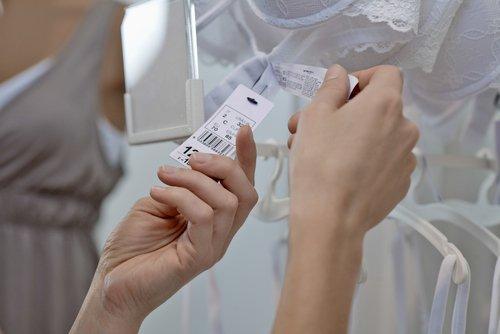Self Checkouts and Price Switching
 Do-it-yourself checkout lanes are becoming increasingly common in grocery stores and retail centers throughout the country. Self checkout systems allow for retailers to maintain more open checkout lines while efficiently managing staff and payroll concerns. They also provide customers an alternative to waiting in extended lines to purchase just a few items. The convenience they offer may make self checkouts seem ideal for both customers and management, but retailers are finding that the machines may provide some shoppers an opportunity for illegal price switching.
Do-it-yourself checkout lanes are becoming increasingly common in grocery stores and retail centers throughout the country. Self checkout systems allow for retailers to maintain more open checkout lines while efficiently managing staff and payroll concerns. They also provide customers an alternative to waiting in extended lines to purchase just a few items. The convenience they offer may make self checkouts seem ideal for both customers and management, but retailers are finding that the machines may provide some shoppers an opportunity for illegal price switching.
Standard checkout lanes, when in use, are staffed by no less than one cashier per register. Self checkouts, on the other hand, are typically supervised in groups, with a single store employee responsible for as a many as eight separate units. This may not present a problem in most cases, as a vast majority of customers simply scan and bag their items, enter their payment, and are on their way. An individual with other intentions, however, may find the lower level of oversight a situation to be exploited.
Changing tags, or price switching, is a method commonly used to pay less than the appropriate retail price for an item by switching the Universal Product Code (UPC) or price tag with that of a less expensive item. With retailers relying on computerized scanning equipment, items are often scanned and bagged in standard checkout lanes without cashiers paying very close attention to the prices. In self checkout lanes, cashiers are able to devote even less attention to each customer. Thus, it may seem quite easy, for example, to take a UPC from one shirt and switch it with that of a lower-priced shirt. At the self checkout, the switched tag is scanned, the shirt goes in the bag, and the individual pays the lower price, all without attracting notice from the computer system or store personnel.
Although price switching may seem to be less serious than shoplifting, Illinois law recognizes no difference. Under the Illinois Criminal Code of 2012, price switching is considered retail theft and depending on the value of the items involved, violators may face misdemeanor or felony charges. Penalties may include fines of up to $25,000 and up to three years in prison.
If you or a loved one is facing charges related to shoplifting, price switching, or any other type of retail theft, you deserve to have a qualified lawyer at your side. Contact an experienced Chicago criminal defense attorney today for a review of your case. We will help you understand your options and provide you with the highest quality legal services.
 1200 Harger Road, Suite 830, Oak Brook, IL 60523
1200 Harger Road, Suite 830, Oak Brook, IL 60523







